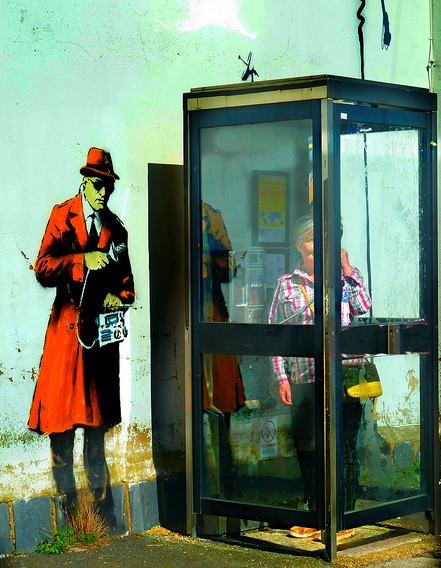Illinois Eavesdropping Law Struck Down—Consent to Record Still Suggested
A voice recording rocked the news when Clippers owner, Donald Sterling, received a lifetime ban from the NBA after racist comments he made in a recording became public. Sterling made the comments in a private telephone call with his alleged mistress that she recorded.
Illinois residents should take note that no Illinois law prohibits a person from recording another’s voice without that person’s consent. Until March 20, 2014, making an audio recording of a conversation without the consent of all parties to the conversation was a crime in Illinois—but not anymore.
When it was in force, the Illinois eavesdropping law made it a crime to knowingly and intentionally use an “eavesdropping device” to record any part of a conversation unless the person making the recording obtained the consent of all parties to the conversation. The law defined a “conversation” as any oral communication between two people regardless of whether one person intended for the dialogue to be private. This meant that the statute affected “a general ban on audio recordings of any oral communication whatsoever, absent consent from all parties, except in limited circumstances that mostly apply to law enforcement authorities.”
Illinois Eavesdropping Law Struck Down by Supreme Court
Two Illinois Supreme Court cases decided on March 20, 2014, struck down the eavesdropping law as vague and overly broad.
People v. Clark
In People v. Clark, the defendant, DeForest Clark, recorded a court hearing in his child support proceeding as well as a conversation he had with the opposing party’s attorney in the courthouse hallway. He claimed he made the recording to preserve the record of the proceeding. The trial court did not convict Clark of the crime because it agreed with him that the eavesdropping law violated his First Amendment and other constitutional rights. The case went up to the Illinois Supreme Court which also agreed with Clark, noting that recording a loud argument on the street, a political debate in a park, and any other conversation loud enough to be overheard by others, in public or private, would violate the law. It found the law overly broad since it was a greater burden on citizens’ speech rights than it was a protection of their privacy interests. Accordingly, it struck down the portion of the statute requiring consent of all parties to the communication for a person to intentionally record a conversation.
People v. Melongo
The Illinois Supreme Court did not stop there. It addressed a portion of the law prohibiting individuals from publishing recordings obtained by using an eavesdropping device in a second case, People v. Melongo. This case centered on a woman, Annabel Melongo, who posted audio recordings of telephone conversations she had with court employees to her website. Melongo made voice recordings of dialogue she had with a county court reporter about errors she believed were made in transcripts of a proceeding she was involved with. After making the recordings, she posted them to her website.
She was charged with eavesdropping and with violating the “publishing provision” of the statute, which makes it a crime to divulge information obtained through eavesdropping. The Illinois Supreme Court overturned the publishing provision as well, finding it went so far as to criminalize the publication of “any recording made on a cell phone or other such device, regardless of consent.” This extremely broad ban on publication could not stand.
The court referred to its decision to People v. Clark, which struck down the law banning voice recording, and found that Melongo had not committed a crime. The court differentiated Melongo’s case from earlier situations where defendants disclosed material they obtained illegally. Since Melongo did not obtain the information illegally, she was an innocent party who should not be prohibited from publishing the recordings to her site.
Taken together, Clark and Melongo have significant implications. Illinois currently has no law prohibiting the act of secretly recording a conversation. But, as Melongo shows, simply posting a secret recording to the internet is not in itself a crime.
The implications of these rulings are broad. Many people carry devices capable of eavesdropping—their cell phones—with them almost everywhere. Media recorded on cell phones can be quickly uploaded to internet sites like Facebook and YouTube, from nearly anywhere. However, just because an individual can record and post a conversation, doesn’t mean they should. For starters, a person could still face criminal and civil penalties depending on the nature of the recording and what they do with it (think: defamation, invasion of privacy, anti-cyberbullying, etc.). Therefore, the best practice when making a voice recording is still to obtain the consent of all parties. At minimum, all participants should be notified, in words so familiar to customer-service line users, that “this call may be recorded.”

